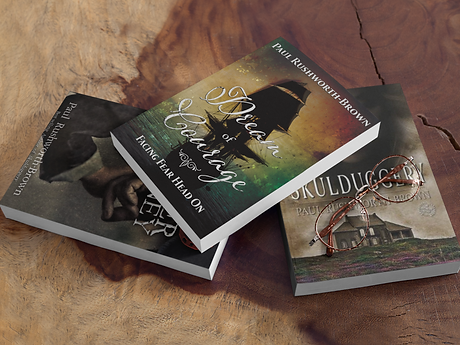
Corporal punishment is derived from a Latin word meaning body. It meant physical punishment and in the past, it was very common.
Whipping has been a common punishment since ancient times. In England from the Middle Ages, whipping was a common punishment for minor crimes. In the 18th century, whipping was a common punishment in the British army and navy. However, it was abolished in the army and navy in 1881.
Whipping women was made illegal in 1820. In 1862 the courts were allowed to sentence men to either whipping or birching. Birching was another form of corporal punishment. This punishment meant beating a man across the bare backside with a bundle of birch rods. In the early 20th century whipping was gradually replaced by birching or imprisonment. In Britain, birching or whipping was banned for civilian men in 1948. It was still used in prisons. Birching was last used in prison in 1962. Whipping and birching were abolished in British prisons in 1967.
In the USA whipping was last used as a punishment in Delaware in 1952 when a man was sentenced to 20 lashes. Delaware was the last state to abolish whipping as a punishment, in 1972.
Before Victorian times no distinction was made between criminals of any age. If someone was caught breaking the law – whether they were six years old or sixty years old they were sent to an adult prison. The Victorian people believed in stiff punishments. Children were punished for skulduggery throughout the ages.
In 1854, Reformatory Schools were set up for criminals under sixteen years old. The people who ran these schools were strict and enforced discipline with frequent beatings. Some of these children were there for several years.
In England, the country’s magistrates wielded considerable power. These men presumably saw to justice, but the poor suffered greatly and biased magistrates had children transported to Australia for stealing bread for their families. Poaching, carried on to feed starving families whose land had been enclosed by their wealthy neighbors.

Public flogging was one form of torture. This punishment started way before Jesus was born – and carried on through the years.
During the 18th century, the number of crimes punishable by death rose to about 200. A death sentence could be passed for pick-pocketing, stealing bread or cutting down a tree. In 1823 Sir Robert Peel reduced the number of offenses for which convicts could be executed by over 100. Lord John Russell abolished the death sentence for horse stealing and housebreaking in 1830.
Prisons during the 18th century were overcrowded and filthy. Often prisoners were herded together with no privacy. Prisoners had to provide their own food, and had little access to fresh water.

Stealing was one of the most common crimes committed during the Middle Ages. Petty theft relates explicitly to the theft of low-value goods from an individual or business. Depending on the severity of the theft, the consequences could range from public humiliation all the way up to bodily mutilation.
In 1872 William Towers was 12 years old. He was caught stealing two rabbits — possibly for food for his family. As punishment William was sent to Wandsworth prison. He was Prisoner 4099.
In the nineteenth century crime was increasing, partly due to the growth of cities. The Victorians were concerned about how to punish criminals.
The usual punishment was transportation to Australia, or execution. Prisons did exist, but they were usually small, old and badly run. By the 1830s the Victorians decided that more prisons should be built.
The Victorians believed that prisons should be uncomfortable and frightening places. They thought this would stop people from committing crime.
William was sentenced to one month’s ‘hard labour’ in Wandsworth prison. Prisoners had to carry out hard, boring tasks, such as walking a treadmill or picking oakum (old rope). At that time, over 1,500 children were held in the same prisons as adults.
The prisoners were kept isolated in tiny cells. This was so that when they were not working, prisoners could think about the crimes they had committed. It was hoped that if they spent time on their own they might start to regret their actions.
Paul Rushworth-Brown is the author of three published novels.
He was born in Maidstone, Kent, England in 1962. He spent time in a foster home in Manchester before emigrating to Canada with his mother in 1972. He spent his teenage years living and attending school in Toronto, Ontario, where he played professional soccer in the Canadian National Soccer League. In 1982, he emigrated to Australia to spend time with his father, Jimmy Brown who had moved there from Yorkshire in the mid-fifties.
Paul was educated at Charles Sturt University in New South Wales, Australia. He became a writer in 2015 when he embarked on a six-month project to produce a written family history for his children, Rachael, Christopher and Hayley.
Skulduggery - A family of copyholders, live each day in isolation from the village, but an attack on one of their own puts them all in grave danger. This story carefully navigates the backdrop of the English Reformation, populating it with likable and despicable characters, and casting them in a fully realised historical mystery setting. It's a slice of history that's totally, utterly believable, and unbelievable. The twists will surprise and the ending is totally unexpected even for the most astute of readers.
स्कुलडगरी - किसानों का एक परिवार, प्रत्येक दिन गाँव से अलग-थलग रहता है, लेकिन उनके अपने में से एक पर हमला उन सभी को गंभीर खतरे में डाल देता है। यह कहानी अंग्रेजी सुधार की पृष्ठभूमि को ध्यान से नेविगेट करती है, इसे आकर्षक और घृणित पात्रों के साथ आबाद करती है, और उन्हें पूरी तरह से महसूस की गई ऐतिहासिक रहस्य सेटिंग में डालती है। यह इतिहास का एक टुकड़ा है जो पूरी तरह से, पूरी तरह से विश्वसनीय और अविश्वसनीय है। ट्विस्ट आश्चर्यचकित करेंगे और अंत पूरी तरह अप्रत्याशित है।
Red Winter Journey - England, 1642. When bloody civil war breaks out between the King and Parliament, families and communities are driven by different allegiances. Red Winter Journey is a sweeping tale of adventure and loss, sacrifice and love, with a unique and unforgettable story of a mother’s love for her son at its heart. A historic journey of twists, turns and a dash of spirited passion.
Dream of Courage- Reading this book can feel like time travel as you let the world pass by and explore a new one. The Rushworths are poor, hungry tenants of the Puritan Jasper Calamy, of Haworth manor, and scratch out a living tending a few sheep, spinning and weaving wool on put out from passing clothiers. Young Robert Rushworth and John Rushworth leave home and stumble across a way to make their fortune, in the Briggate in Leeds. Pursued by John Wilding, a brogger and brute of a man, with no manners or decorum, typical of the ‘lower sort’ of the time. Smythe, the local tavern keeper, has many secrets and with a hidden past, sends Robert to The Haven, to Captain Girlington of 'The Pearl'. Will Robert escape before it's too late? Will he hang? Will Robert and Ursula ever be together?





.png)

.png)

.png)
.png)



.png)











Comments